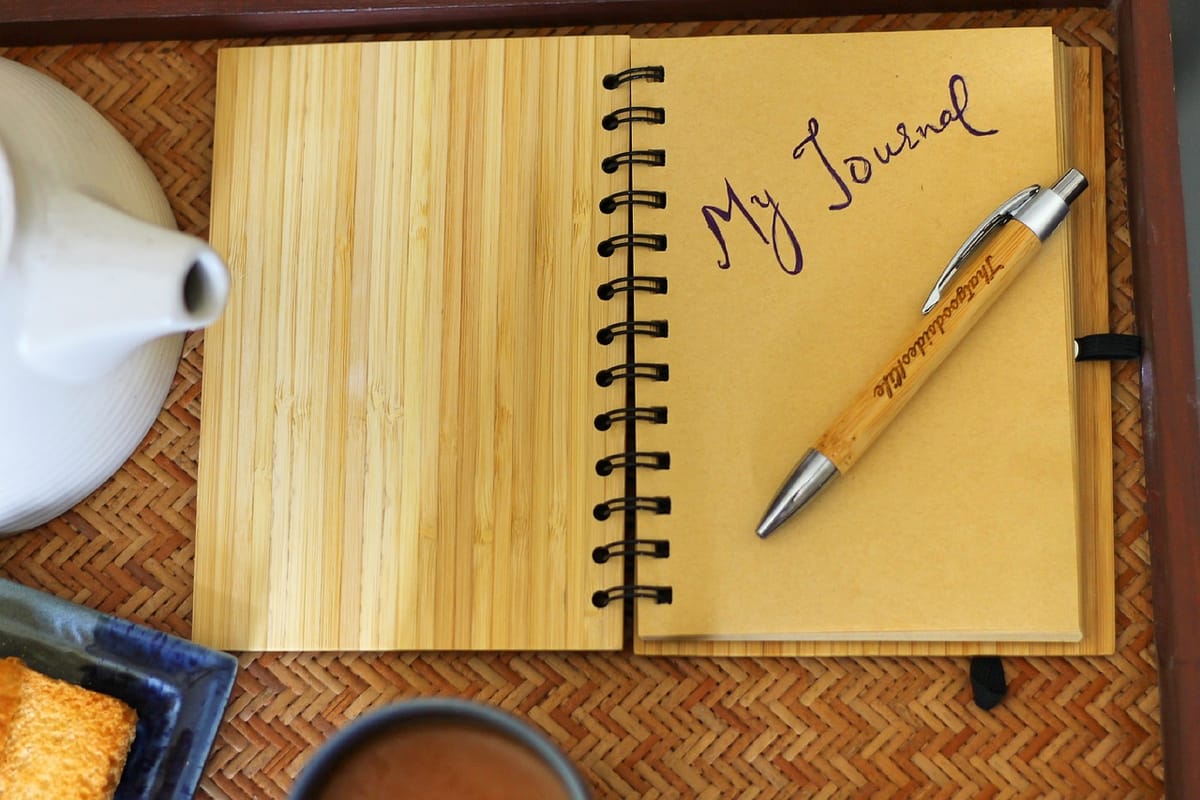From Diaries to Captain’s Logs
The Benefits of Journaling

In its broadest sense, journaling documents one's thoughts, experiences, and reflections. Whether you call it a journal, a diary, or even something as iconic as Captain's Log from Star Trek, journaling is a highly beneficial activity that anyone can engage in, regardless of the format or medium. From Marcus Aurelius, the most powerful Roman emperor, to the everyday person, journaling has played a vital role in human life throughout history.
The Many Faces of Journaling
In modern times, journaling comes in various forms, making it accessible to anyone, regardless of their preferences or tools. Some people prefer the traditional method of putting pen to paper in a notebook. Others gravitate toward typing their thoughts on a computer. And with today's technology, recording personal reflections in audio or video form is just as valid. The medium doesn't matter—the act of expression itself matters.
Journaling can be as private as you want or as public as sharing your thoughts on a blog, social media, or even a YouTube channel. The benefits remain the same whether your thoughts are meant for your eyes only or for a larger audience. Like Marcus Aurelius, who penned his now-famous Meditations as a profoundly personal journal, many people find that documenting their thoughts can have unexpected value beyond their original intent.
Mental Clarity and Emotional Release
One key benefit of journaling is the mental clarity it can provide. Writing things down helps people process their emotions, thoughts, and experiences more deeply. When life feels overwhelming, journaling can help untangle complex emotions or solve problems that seem insurmountable. By capturing thoughts on paper or digital, we create distance from our feelings, allowing for more objective reflection.
Moreover, expressing emotions in a journal can be a form of emotional release. Journaling provides a safe, private space to vent and express ourselves without judgment when people are angry, sad, or frustrated. Studies have shown that journaling can reduce stress and anxiety and even improve mental health by providing an outlet for bottled-up emotions.
Self-Discovery and Growth
Journaling encourages self-discovery and personal growth. By regularly documenting thoughts, individuals can track patterns in their behavior, thought processes, and emotional responses. This can lead to greater self-awareness, allowing individuals to make positive changes.
Over time, rereading old entries can highlight how far someone has come, what they've overcome, and how they've changed. This sense of progress is profoundly motivating and can serve as a reminder of personal resilience and growth, especially during tough times.
Creativity and Reflection
Journaling can serve as a wellspring of ideas and inspiration for those in creative fields. Writing freely without constraints can spark creative thoughts that may not surface otherwise. It allows reflection on past experiences, drawing new insights that might fuel future projects, stories, or endeavors.
Even for non-writers, journaling helps connect the dots between experiences and emotions in ways that might not be apparent at first glance. Whether someone is looking to gain perspective on an issue or jot down random thoughts, the process often leads to unexpected revelations.
The Legacy of Journaling
Marcus Aurelius never intended for his journal to be read by anyone else. Yet, after his death, his reflections were discovered and compiled into what is now known as Meditations, a timeless work of philosophy. This is a powerful reminder that even the most private thoughts can leave a lasting impact. Though most people's journals won't end up as historical texts, documenting life can still have lasting meaning—for the individual or their loved ones.
Whether you keep your journal private or share it with the world, its value lies in the process, not the outcome.
Regardless of how it's done, journaling is a practice that can enrich anyone's life. Whether you scribble your thoughts in a notebook with a fountain pen, type them into a digital document, or record yourself speaking self-expression is invaluable. Journaling provides mental clarity, emotional release, self-discovery, and creativity. Like Marcus Aurelius and his unintentional gift to posterity, our personal reflections may offer surprising benefits—not just for ourselves but others.
So, pick up a pen, open a new document, or press record. You'll be surprised at how journaling can transform your life.




